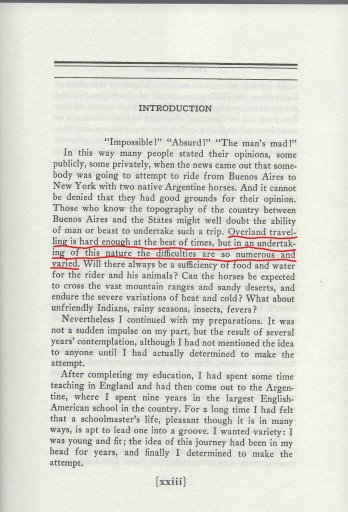
Educator I
I went away for work last week. I loaded myself up with some podcasts to listen to while stuck in an aluminum can at 30,000 feet. One podcast I listened to discussed 'What is Overlanding?' The text of the link summarizes the podcast well but, to save people a click, I will quote some below.
"Overlanding describes self-reliant adventure travel to remote destinations where the journey is the primary goal. Typically, but not exclusively, accommodated by mechanized off-highway capable transport (from bicycles to trucks) where the principal form of lodging is camping; often lasting for extended lengths of time (months to years) and often spanning international boundaries. While expedition is defined as a journey with a purpose, overlanding sees the journey as the purpose...
...The critical point to the term overland travel is that the purpose is to include at least two or more of the following: 1. Remote locations, 2. Cultures other than your own, 3. Under-explored or under-documented regions, 4. Self-reliance in unfamiliar territories for multiple days, weeks or months. That is to say, an overnight trip to the local mountains on a well-documented route, staying in an established campground with full-hookups, is not an overland adventure, it is a backcountry trip or at the very least, car camping. "
I got the sense that the growing popularity of Overlanding is diluting the host's past achievements and, by implementing requirements, the hosts were 'gate keeping' the term to preserve a legacy.
Is there a minimum time limit ('months to years')? Do I really need to cross international borders? Would Canada even count? What do others feel?
"Overlanding describes self-reliant adventure travel to remote destinations where the journey is the primary goal. Typically, but not exclusively, accommodated by mechanized off-highway capable transport (from bicycles to trucks) where the principal form of lodging is camping; often lasting for extended lengths of time (months to years) and often spanning international boundaries. While expedition is defined as a journey with a purpose, overlanding sees the journey as the purpose...
...The critical point to the term overland travel is that the purpose is to include at least two or more of the following: 1. Remote locations, 2. Cultures other than your own, 3. Under-explored or under-documented regions, 4. Self-reliance in unfamiliar territories for multiple days, weeks or months. That is to say, an overnight trip to the local mountains on a well-documented route, staying in an established campground with full-hookups, is not an overland adventure, it is a backcountry trip or at the very least, car camping. "
I got the sense that the growing popularity of Overlanding is diluting the host's past achievements and, by implementing requirements, the hosts were 'gate keeping' the term to preserve a legacy.
Is there a minimum time limit ('months to years')? Do I really need to cross international borders? Would Canada even count? What do others feel?








